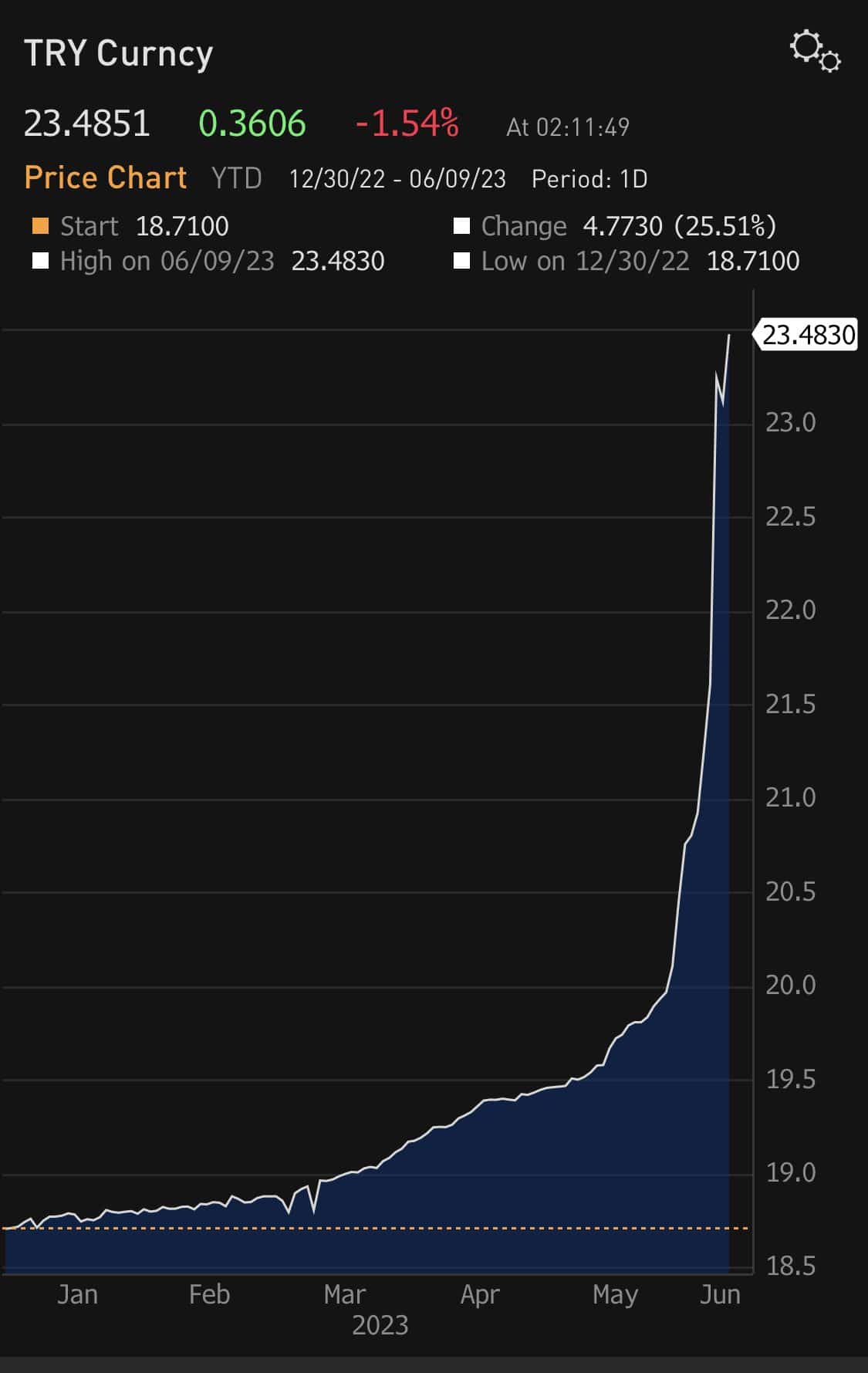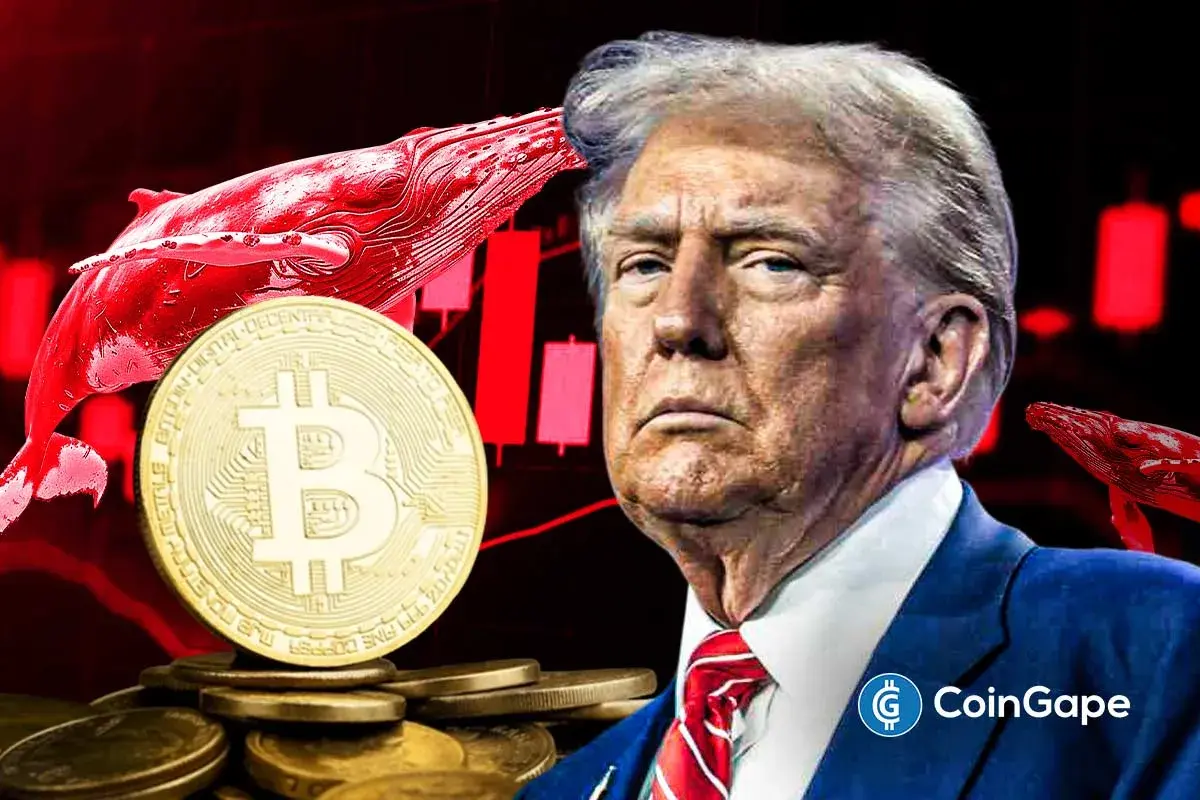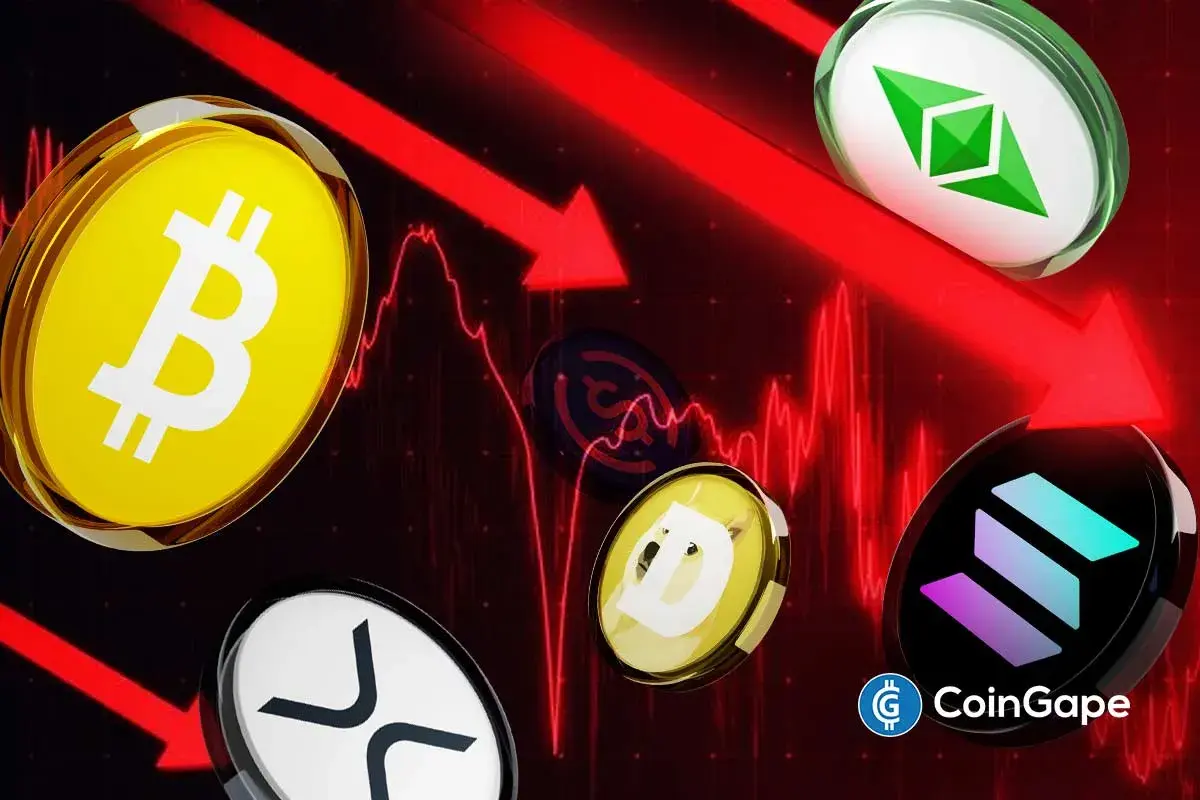Michael Saylor Proposes Bitcoin To Solve Turkish Lira Issue

In recent years, the Turkish economy has faced significant challenges, including currency depreciation and inflationary pressures. Amidst these difficulties, Bitcoin, the world’s largest cryptocurrency, has caught the attention of prominent figures like Michael Saylor, CEO of MicroStrategy. He proposes digital currencies like Bitcoin to save the weakening regional currencies in Turkey, but how practical is it?
Michael Saylor On Turkeish Lira
Mohamed El-Erian, Egyptian-American economist and businessman, tweeted about the challenges faced by the Turkish currency, the Lira, and the authorities’ limited ability to intervene in markets to counter its weakness. In response, Michael Saylor expressed his belief that Bitcoin represents the best solution for those struggling in an economy with a collapsing currency like the Lira.
Saylor’s bullish sentiment can be seen in his tweet response to Mohamed El-Erian’s observation about the Turkish Lira:
“@elerianm #Bitcoin represents the best solution for those struggling to survive in an economy with a collapsing currency like the Lira.”
Saylor, a preponenent of Bitcoin believes traditional fiat currencies, including the Turkish Lira, are subject to inflationary pressures due to factors like government policies and economic instability. Bitcoin, on the other hand, has a finite supply, with a maximum limit of 21 million coins, making it resistant to inflation.
By directly addressing El-Erian, Saylor highlights his belief that Bitcoin can provide a viable alternative for individuals and businesses in countries with struggling currencies.
But is giving a hedge against the devaluation of their domestic currency and preserve purchasing power enough?
Why BTC Maynot be Enough?
Doubts however have been raised against Bitcoin preponenents like Saylor and another being Max Keiser. In a tweet addressing El Salvador corruption rates since the inception of Bitcoin, Leerzeit asks:
“Hey @maxkeiser, never was there more perceived corruption in El Salvador since when you started bribing the government with Bitcoin. I would think about that once. And maybe next time don’t brag on video about how much you love bribing politicians. So much for your fairy tale about Bitcoin as an anti-corruption tool.”
CertiK reported in May that estimated $429.7 million (roughly Rs. 3,510 crore) were stolen by crypto scammers and hackers in digital economy world.
Maybe Bitcoin as a legal tender is the solution but it underscores the necessity of assessing the limitations of Bitcoin and similar digital assets when addressing complex societal and economic issues.
- Will Bitcoin Crash Again as ‘Trump Insider’ Whale Dumps 6,599 BTC
- XRP News: Ripple’s RLUSD Gets Boost as CFTC Expands Approved Tokenized Collateral
- Crypto Markets Brace as Another Partial U.S. Government Shutdown Looms Next Week
- $40B Bitcoin Airdrop Error: Bithumb to Reimburse Customer Losses After BTC Crash To $55k
- ETH Price Fears Major Crash As Trend Research Deposits $1.8B Ethereum to Binance
- Cardano Price Prediction as Midnight Token Soars 15%
- Bitcoin and XRP Price Outlook Ahead of Crypto Market Bill Nearing Key Phase on Feb 10th
- Bitcoin Price Prediction as Funding Rate Tumbles Ahead of $2.1B Options Expiry
- Ethereum Price Outlook as Vitalik Buterin Sells $14 Million Worth of ETH: What’s Next for Ether?
- Solana Price at Risk of Crashing Below $50 as Crypto Fear and Greed Index Plunges to 5
- Pi Network Price Prediction Ahead of PI KYC Validator Reward System Launch

















